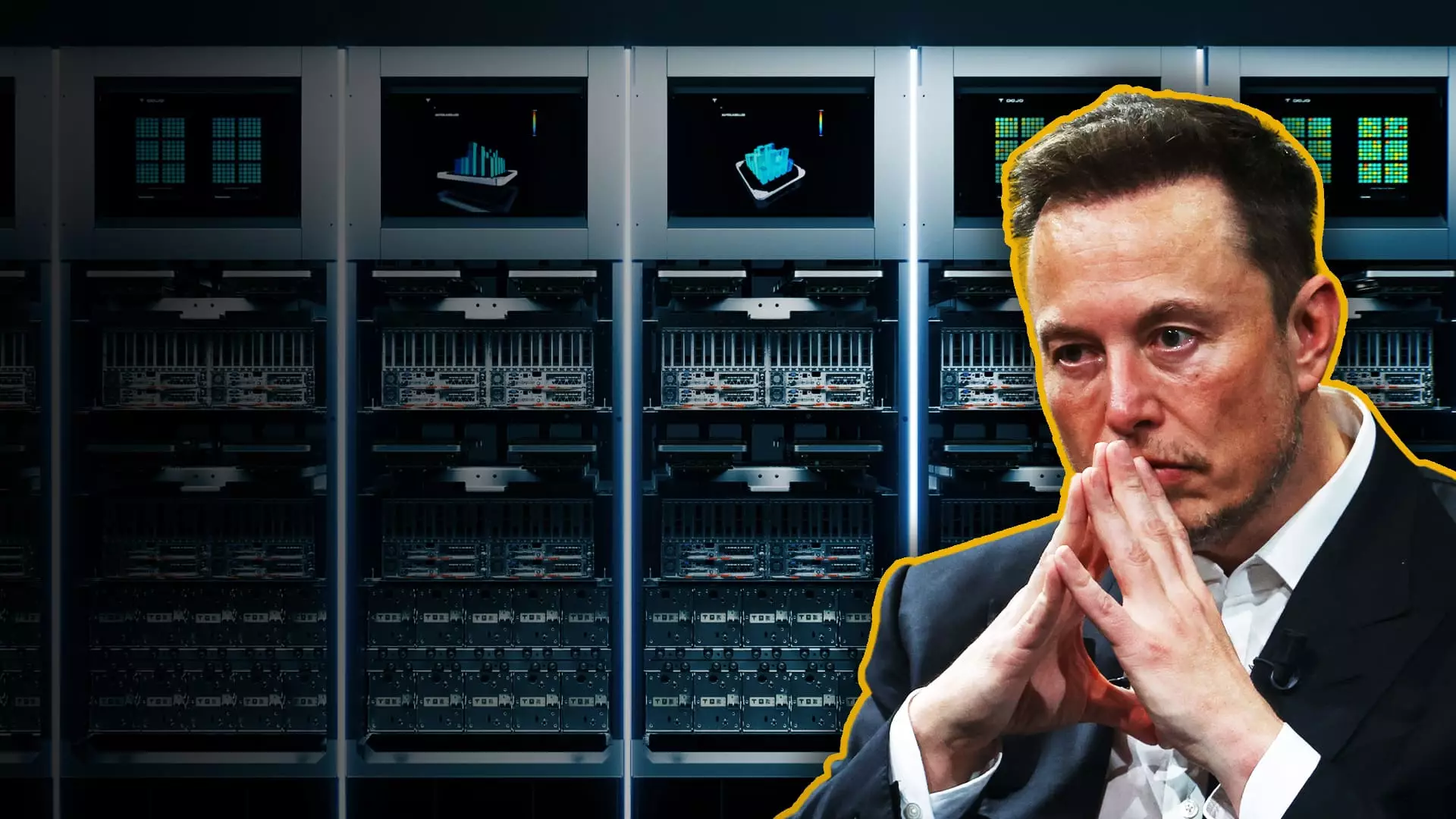Elon Musk, a name synonymous with innovation and disruption, is embarking on a groundbreaking journey to elevate artificial intelligence (AI) through the development of advanced supercomputers. As the CEO of Tesla and the driving force behind his latest venture, xAI, Musk envisions a future where AI integration transforms traditional industries. By rebranding Tesla from merely a car manufacturer to an AI and robotics enterprise, Musk aims to redefine transportation and its underlying technology.
Central to this transformation is Tesla’s Dojo, a custom-built supercomputer designed to process and train sophisticated AI models using the extensive volumes of data collected from the company’s fleet of vehicles. This investment signifies a strategic pivot towards AI-driven capabilities, with Tesla committing to an expenditure of $500 million for the supercomputer’s establishment in Buffalo, New York. In addition to Dojo, the company is developing a separate supercomputer cluster known as Cortex at its Austin headquarters.
At the heart of Tesla’s AI aspirations lies the vast ecosystem of data generated by the company’s vehicles. With over five million cars equipped with a myriad of sensors and cameras, Tesla collects continuous streams of information as these vehicles traverse highways and city streets. According to Steven Dickens, chief technology advisor at Futurum Group, the sheer volume of footage and input data provides Tesla with a unique training set capable of refining its Full Self-Driving (FSD) capabilities. While current offerings include a range of features such as automatic lane changes and parking assistance, the potential for reaching full autonomy remains a tantalizing goal for the company.
Yet, despite the ambitious claims surrounding FSD and Autopilot, it is essential to acknowledge the stringent regulatory scrutiny that Tesla has faced. Critics argue that the marketing language often overstates the true capabilities of these systems, potentially misleading consumers. As the race for self-driving technology intensifies, achieving regulatory compliance and public trust becomes paramount, especially as traditional automakers are racing to narrow the technological gap.
The competitive landscape in the field of autonomous vehicles is increasingly bustling. Companies such as Waymo, GM’s Cruise, and Amazon’s Zoox are already piloting autonomous taxis in urban environments, proving that full autonomy is within reach. Furthermore, competitors operating in China, including Didi and Baidu, are also racing to develop the same technology. Against this backdrop, it is crucial for Tesla to accelerate its efforts in AI development and robotaxi deployment to maintain its competitive edge in the industry.
While Musk remains optimistic about the capabilities of Dojo, he acknowledges the technological race at hand. The company is banking on the supercomputer’s capabilities to integrate advanced AI solutions that can overcome the present limitations of its driver-assist systems. Tesla’s anticipated robotaxi event, now rescheduled for early October, could provide insight into the company’s progress in this area.
In addition to enhancing its vehicle technologies, Tesla is also leveraging machine learning and AI to streamline its manufacturing processes. The humanoid robot Optimus is poised to revolutionize productivity within Tesla’s factories when it is launched later this year. With Dojo’s capabilities serving as an asset in training Optimus, the potential for increased efficiency in production is substantial. This dual focus on both product and production signifies Musk’s commitment to harnessing AI for operational excellence.
Yet, Musk’s ambitions extend beyond Tesla. In 2023, he founded xAI, an endeavor aimed at advancing large language models and other AI tools, thereby positioning itself as an alternative to established players like OpenAI, Microsoft, and Google. After exiting OpenAI in 2018, Musk has vocally critiqued its trajectory, revealing a deeply ingrained belief in the necessity of responsible AI development. The establishment of a supercomputer in Memphis for xAI marks a defining moment as Musk strives to create sophisticated AI products, evidenced by the launch of the chatbot Grok.
As Musk sets the stage for a new era in AI-integrated technology, the outlook for Tesla and its associated ventures is both exhilarating and fraught with challenges. Shaping the future demands not just advanced computing power but also a judicious approach to technology deployment that aligns with regulatory mandates and societal expectations. Navigating this intricate landscape will determine the success of Musk’s vision, laying the groundwork for innovations that could redefine industries for generations to come.


Leave a Reply